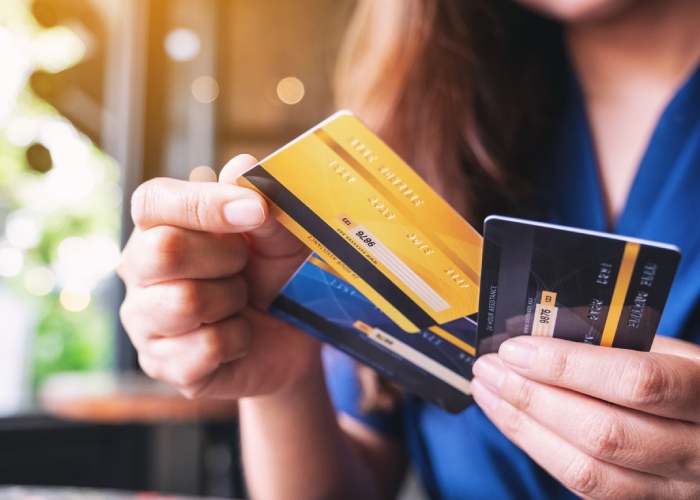Living, investing, or spending a season in Spain often requires having a local bank account.
Technically, you don’t need a Spanish bank account to live in Spain, but it is highly recommended if you want to avoid many inconveniences.
For French nationals, opening a bank account in Spain (as a resident or non-resident) is absolutely possible, but it requires understanding the difference between the two statuses, the required documents, tax implications, and the specificities of the Spanish banking system.

Opening a bank account in Spain really makes life easier for French people living there.
1. Resident vs non-resident: which status applies to you?
Before opening an account in Spain, it is essential to determine your status:
Non-resident: you live abroad and are not fiscally resident in Spain. You do not stay more than 183 days/year and do not have your “economic center of interest” in the country.
Resident: you stay in Spain continuously or are fiscally resident (more than 183 days/year or your economic base is in Spain).
Your status determines the type of bank account (resident or non-resident) and the documents required.
2. Why open a bank account in Spain?
Here are a few good reasons:
If you live in Spain or spend a lot of time there, a local account simplifies bill payments (electricity, water, internet), as many providers require a Spanish IBAN.
If you earn income or want to invest in Spain (rentals, property purchases…), a Spanish account makes transfers easier and often reduces fees.
To access specific local banking products (cards, mortgages, insurance…), being a customer of a Spanish bank is often necessary.
Opening an account is sometimes free, especially with simple or online accounts.
3. Choosing the bank and type of account
1. Choosing the bank
Major Spanish banks include: Banco Santander, BBVA, CaixaBank, Banco Sabadell.
Choose a bank offering services for expats or a website in French/English.
Compare fees carefully: account management, debit cards, withdrawals, international transfers, bank checks, etc.
Good to know:
Opening an account remotely is often possible for EU citizens.
Bank checks (often required for property purchases) can be expensive depending on the bank.
For property purchases, the bank check is often free if you subscribe to the bank’s home insurance.
2. Resident vs non-resident
If you are not a resident, choose a non-resident account (slightly stricter conditions).
If you are a resident, open a standard resident account.
4. Required documents
1. For non-residents
Documents commonly requested:
Valid passport or national ID card (for EU citizens)
Proof of address in your home country
Tax identification number (in your home country)
Proof of income or employment, in some cases
Note:
Opening an account may be possible with or without a NIE for EU citizens.
2. For residents
You will need:
ID card or passport
NIE (foreigners identification number)
Recent proof of address (utility bill, rental contract, etc.)
Proof of activity or income (salary, pension, etc.)
5. Steps to open a bank account
Choose the bank and check the conditions (resident/non-resident, fees, card).
Gather the required documents depending on your status.
Submit your application: online (depending on the bank) or in person.
→ For non-residents, an appointment may be required.Sign the agreement: check fees, services, and card conditions.
Account activation: receive your card and access online banking/mobile app.
Useful tip:
You can give someone power of attorney (signed before a notary or at the French consulate) to handle the process for you very convenient for property purchases.
6. Online accounts: a simple and fast alternative
Online banks like Revolut, N26, Wise, or Bunq are very practical for:
managing Spanish bills,
making international payments,
opening an account in minutes from your phone.
These options are ideal for daily use, but:
→ for property purchases, it is better to use a physical Spanish bank to obtain an official account and a recognized bank check.
Conclusion
Opening a bank account in Spain, whether you are a resident or a non-resident, is a simple and often free process for French citizens.
By determining your status, preparing the required documents, and choosing a bank suited to your needs (online or traditional), you will benefit from smooth local financial management for your payments, bills, or property projects.
And remember:
Opening can often be done remotely.
Some banks offer free bank checks if you take their home insurance.
A notarized or consular power of attorney can save you a trip.
